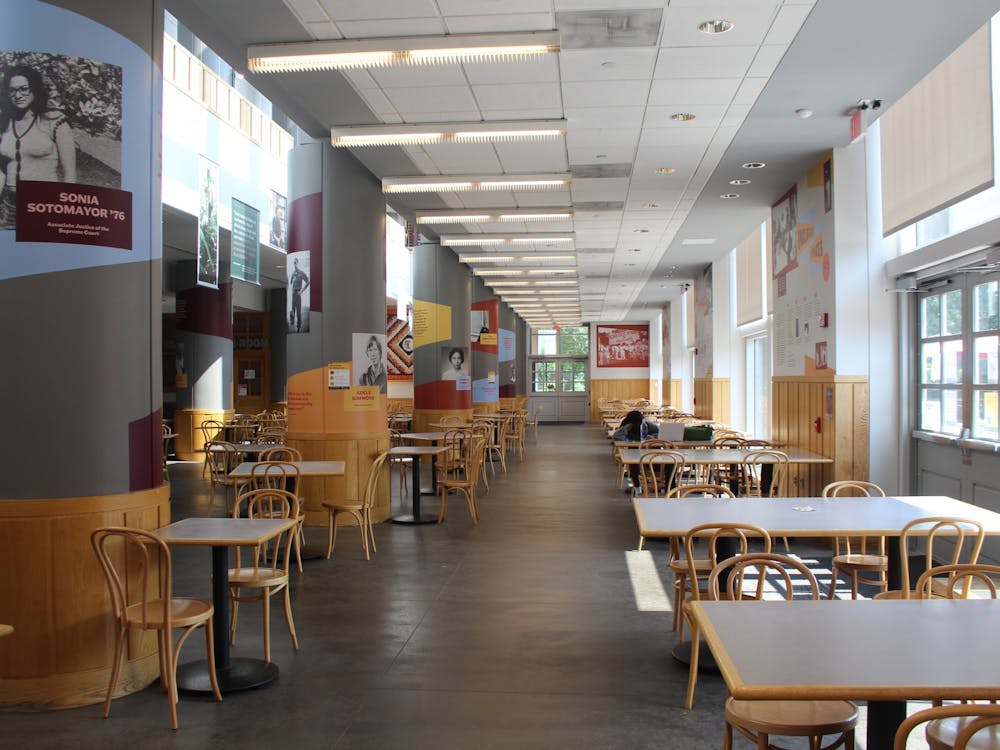Nearly a month after the early application deadline, many Ivy League colleges are reporting that the number of applicants is once again higher than ever, despite anthrax-related mail disruptions and fears of possible side effects from the Sept. 11 attacks.Columbia, Cornell and Harvard universities and the University of Pennsylvania have all experienced slight increases in the number of early applicants compared to last year. The number of early applications to Dartmouth College is projected to stay the same.
The University of Pennsylvania has received 3,056 early decision applications, a 6.5 percent increase over last year's total of 2,851 early applicants, according to Penn's admissions dean Lee Stetson. Cornell applications are up about 3.2 percent to 2,861 for the Class of 2006 from 2,589 for the Class of 2005, said Doris Davis, the assistant provost for admissions and enrollment at Cornell.
At Columbia, the number of early decision applicants has risen about 6.5 percent to 1,569 this year from 1,498 from last year, according to the Columbia Spectator.
The final number of early action applicants at Harvard was unavailable. But Andrea Balian, assistant to the director of admissions at Harvard, said in an e-mail that the current number of applications is slightly up from last year's total number of 6,098.
At Dartmouth College, the number of applicants remained approximately the same as last year, according to Karl Furstenburg, the college's dean of admissions and financial aid. The number of applications has dropped by 15 to 1,120 for the Class of 2006 from 1,135 for the Class of 2005 thus far, he said.
"There are still a few [applications] dribbling in because of the mail disruptions," he said, referring to the delays caused by the anthrax contaminations and scares.
Admissions officers at Yale and Princeton universities would not repeat their projected numbers of applications, and officials at Brown University were unavailable for comment.
"We don't discuss admissions while we're in the middle of a given year's admissions process," University Dean of Admission Fred Hargadon said. "And we're in the middle of it right now."

Last year at Princeton more than 1,850 students applied early decision for the Class of 2005, almost 200 more than the previous year.
Doris added that Cornell, like Princeton and many other universities nationwide, has extended its early application deadlines because of mail delays and disruptions.
"With regard to the anthrax-related mail disruptions, we are being more flexible with regard to the submission of credentials, and we are dealing with each situation on a case-by-case basis," Davis said.
Davis added that the mail disruptions in the Princeton mail center have caused delays in the reporting of SAT scores, because The College Board, which administers the standardized tests, mails score reports through this nearby facility.

Furstenburg also mentioned that the events and the aftermath of Sept. 11 could have distracted many students from mailing their applications by the deadline.
"Because of the closeness of the early decision deadline to Sept. 11, many students may not have been as committed to making that deadline as they might have otherwise," Furstenburg said.
But despite widespread mail delays and the Sept. 11 attacks, the struggling economy and rising unemployment — all factors that college officials nationwide have feared could decrease the number of applications — it appears that the past decade's upward trend in applications to Ivy League colleges will continue yet another year.
"My sense of this is that bright, ambitious students will continue to apply to the best universities regardless of what is going on elsewhere," Furstenburg said. "The events of Sept. 11 and the economy — which will be as big an influence as anything — won't dissuade them from applying."







